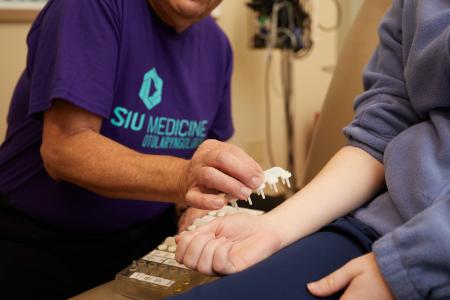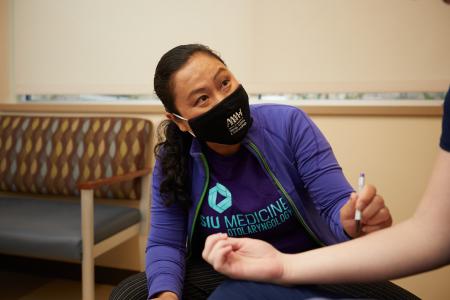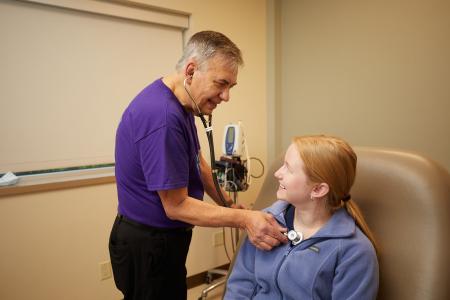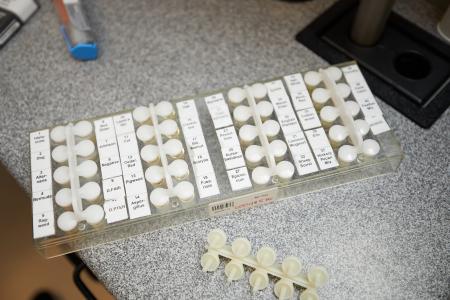Types of allergy testing
There are different types of allergy testing depending on the suspected allergen that you are being evaluated for. These include skin patch tests, food, and drug challenges, and other methods designed to identify agents that cause allergic reactions.
During an allergy skin test, your doctor will expose your skin to the suspected allergy and then observe you for signs of an allergic reaction.


Why we perform allergy testing
Your doctor has chosen to perform an allergy test to determine the cause of moderate to severe allergy symptoms. These symptoms often interfere with daily living activities and can include sneezing, congestion, itchy eyes and general fatigue. The goal of the testing is to determine the cause and come up with a treatment plan to reduce allergic reactions over time.
Skin tests are generally safe for adults and children of all ages, including infants. In certain circumstances, though, skin tests aren't recommended. Your doctor will determine if it is safe to do allergy testing.
How to prepare for your appointment
You will be asked detailed questions about your medical history, your signs and symptoms, and how you've been treating them. These answers will determine if testing is right for you.
Medications you will be asked to stop taking
Certain medications can interfere with the results of an allergy test. Your doctor will go over all of your medication including prescription and over-the-counter. It is important that you stop taking the medications that could prevent an accurate test result.
Because medications clear out of your system at different rates, your doctor may ask that you stop taking certain medications for up to 10 days. Please refer to the list of medications by clicking on the link below.


Results and next steps
Depending on your allergy test, you could leave the same day with the results. Other tests, such as patch testing may take several days for results.
A positive test indicates you may be allergic to the tested substance. A negative test means you probably aren't allergic to the substance.
Skin tests aren't always accurate. Some tests can produce a false-positive or testing may not trigger a reaction when exposed causing a false-negative. It is possible to react differently to the same test performed at different times.
Your doctor will go over your plan which could include changes to your environment, diet, medications, or immunotherapy. Make sure to discuss any questions about the changes during your appointment.

